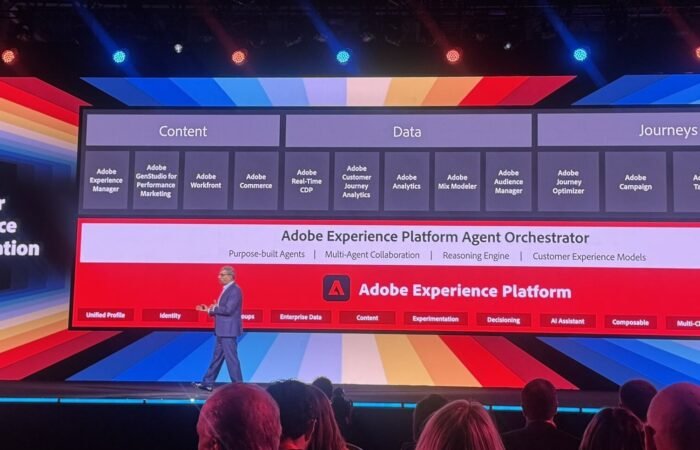How can brands thrive in a world where everyone wants to feel like a preferred customer?
Sitecore Symposium focused on answering just that. They’ve recently taken #SitecoreSym on the road to allow those that couldn’t make it to Orlando last fall a chance to get in on the action. Luckily, we were among the thousands gathered to meet and share our strategies and experiences in how we offer the best customer experiences in the work we deliver. It was an absolutely epic four days in Florida.
The last Symposium I was able to attend was 2016 in New Orleans. Thinking back to that event and time, the importance of delivering personalized experiences within an organization was not nearly what it’s grown to. Today, 81% of companies say that customer experience is a competitive differentiator.
There was a lot of information shared at Sitecore Symposium – far too much for a single blog post – but there are a few takeaways that were raised in Sitecore CMO, Paige O’Neill’s remarks. They really highlight the importance being placed on the customer experience.
74% of Americans prioritize experiences over products.

Let’s take it back. In the post-war America of the 1950s and 60s, the economy was booming. Families were buying houses, cars (big V8 Cadillacs 🙂), and modern home appliances. Citizens were showing their patriotism and support by throwing money back into the economy, resulting in a huge surge in spending.
Today’s world is vastly different. Living in the midst of the experience economy means consumers can use a variety of app-based services to do virtually anything they want.
Instead of spending weekends at the mall, we’re out creating and participating in experiences. Growing up, I remember a cupboard full of board games. Today, instead of purchasing and playing board games, we’re actively seeking experiences – escape rooms, renting an Airbnb, participating in mud races, etc. – and instead of memories living in scrapbooks and albums, we’re sharing these adventures across social channels and bringing others along in our experiences.
While technology-focused millennials are leading this societal change, baby boomers entering retirement are downsizing their belongings and also putting emphasis on relationships and experiences.
To bring it back to business, this is why it’s important for companies to connect with their customers on a personal level.
42% of companies don’t listen to their customers.

In his talk, Magic Johnson (my new hero) talked about two changes he implemented after becoming an owner of the Los Angeles Dodgers. Both changes were based on the importance of saying thanks, creating discourse, and retaining feedback from customers.
His first steps? Ask the right questions and do the research.
Well, what are the right questions?
In this case, he wanted to find out why the Dodgers’ once-loyal fan base was no longer attending games. The overwhelming feedback was actually quite simple. Parking was too expensive. His solution? Cut the price of parking to a $10 flat rate. The result? The fans came back because they had been heard.
Through his research, Magic found that the Dodger’s average demographic was 52 year-olds. In his quest to find and understand a reason for this, he reached out to younger customers to learn why they weren’t interested in coming to the stadium.
Turns out, millennials aren’t necessarily there for the sports, they’re there for the scene and want to socialize. Sitting in a seat the whole time didn’t work for them. Magic’s solution was to build a fan pavilion, creating a space for the not-so-serious baseball fans to drink and chat while watching the game on big screens.
By listening to his customers and implementing small changes, the Dodgers achieved record ticket sales for the MLB.
As of 2019, retail’s digital spend surpassed $200B with no signs of slowing.
Tying this back to my first point — experiences over products — the retail sector will not escape a dramatic digital disruption. Transformation is no longer a choice — it’s a business imperative.
In early 2019, online shopping overtook traditional instore shopping. It should come as no surprise that this was heavily led by Amazon and their Prime expedited shipping.
Retailers are now expected to do more than simple online email personalization campaigns. They must combine online social marketing, customized apps, and in-store experiences.
Late last year, Content Bloom implemented a combined app / in-store experience for a large American doll manufacturer. The app allowed users to design and configure their dolls and, when entering one of their high-street stores, they were greeted by a large digital display. This also informed parents where the items their child had configured were available. Parents may hate us for that, but it was a huge success.

Even with all my rambling, I’ve only touched on 1% of how great Sitecore Symposium was. If you’re looking to drive more activity and sales online via your Sitecore implementation, our team of Sitecore consultants can help.





